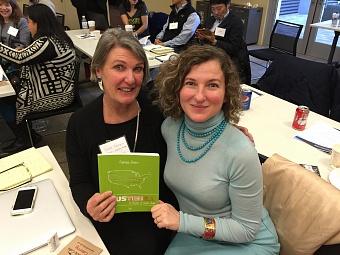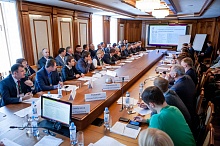
On January, 11 of 2016 series of presentations on the book by Evgeniya Shamis “Clusterra, or Clusters in Simple words” took place in the Center of Entrepreneurship and Technologies (CET) of Berkeley University (CA, USA). Those presentations combined with discussions were organized during the Boot camp – annual event for technological and engineering startups.
“Development of professional communities and clusters is an actual theme for all countries of the World, even for the state of California which is very successful due to clusters of Silicon Valley and San Francisco Bay Area. The reason is simple: clusters allow to win in the modern global competition, - comments Evgeniya Shamis. What differentiated discussions about clusters in Berkeley from book discussions in other countries? First of all, there is very positive attitude to clusters from the very beginning and immediate transfer of practices to real-life situations in the cities, regions and countries of the participants. Noone expected that things would not come true, there was no over-criticizing. Vice versa, the participants were looking for solutions. Californians were fast to transfer general discussion into personal responsibility: what can I do for clusters near me. Second, there is a big global challenge with ecosystems and professional communities - catastrophic lack of technologies and people who like and are able to use those technologies. In Berkeley discussion moved fast using of concrete technologies. Surely, all of us should work much more with technologies. Third, participants from California knew local companies founded in the university and the state very well, so they referred to concrete local cases. In Russia and Brazil people lack knowledge about regional successes and this lack of awareness prevents people from belief that they can achieve success in their own region. From unusual observations: several participants raised the issue of clusters for space expansion. For example, how to consider cluster approaches when humanity flies to space in massive numbers”.
Previously presentations of the book “Clusterra, or Clusters in Simple Terms” took place in Russia (Samara, Tomsk, Moscow, Cheboksary, Saint-Petersbourgh), Brazil (Rio de Janeiro, Belo Horizonte), Sweden (Stockholm).
